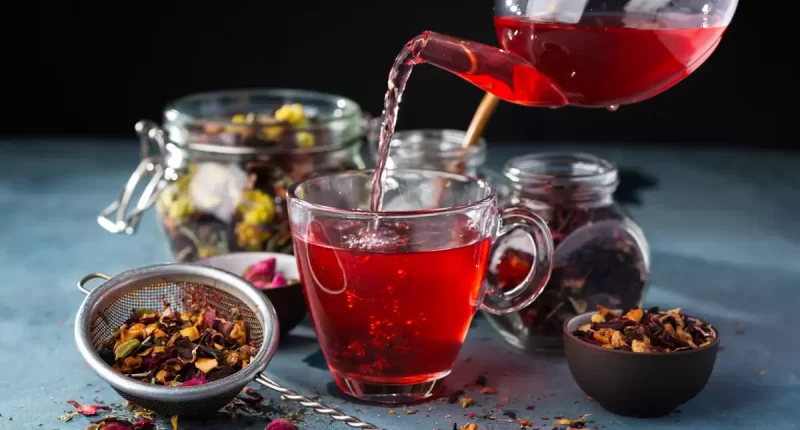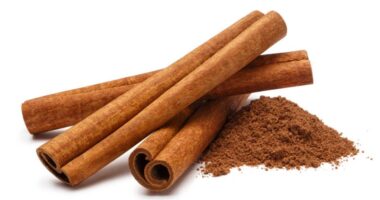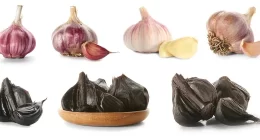Find out “10 Incredible Health Benefits Of Hibiscus Leaves” The Hibiscus plant is one of the most common plants in the world and is known for its attractive and colorful flowers. It grows in tropical and subtropical regions including Thailand, Sudan, Nigeria, China, and Mexico.
In traditional medicine, hibiscus (also known as roselle or sorrel) has been used to treat high blood pressure, liver problems, and indigestion. It has been used for decorative, culinary, cosmetic, and medicinal purposes for centuries. Tea, extracts, supplements, jellies, syrups, sauces, and jams can all be made from it.
In this article, we’ll discuss the benefits of Hibiscus leaves, which are the leaves of the Hibiscus plant.
10 Incredible Health Benefits Of Hibiscus Leaves

1. May help lower blood pressure
One of the benefits of hibiscus leaves is that they may aid in lowering blood pressure. High blood pressure causes an extra strain on the heart, and this weakens it. Hibiscus leaves contain antioxidant properties that help lower blood pressure.
A 2010 study showed that the consumption of tea made from hibiscus leaves lowered blood pressure in people with high blood pressure.
2. Great source of antioxidants
Antioxidants are molecules that help in fighting against free radicals, which cause damage to the cells in the body.
Hibiscus leaves are rich in antioxidants that may help fight against free radicals that might cause diseases in the body.
A 2011 study in rats showed that the extracts from hibiscus leaves increased the levels of antioxidants in the rats and reduced the effects of free radicals.
3. May help reduces cholesterol levels
Some studies show that hibiscus leaves extract may help reduce cholesterol levels which can cause heart disease.
A 2010 study showed that the consumption of hibiscus extract was associated with decreased bad cholesterol and increased good cholesterol.
4. Combats inflammation
Inflammation is associated to the development of many illnesses, such as cancer, asthma, Alzheimer’s disease, heart disease and rheumatoid arthritis.
Several animal studies and a few small human studies have demonstrated that hibiscus might be effective in fighting inflammation.
In fact, a 2016 study confirmed that hibiscus leaves possesed anti-inflammatory properties.
Although more research is needed, it seems that hibiscus leaves may offer helpful anti-inflammatory effects.
5. Destroys bacteria
Many scientific studies have shown that hibiscus leaves had the ability to inhibit bacterial growth and infection.
One study found out that hibiscus leaf extract was effective against eight strains of bacteria and even showed similarities to medications used to treat bacterial infections.
6. Aids in weight loss
Hibiscus leaves contain anthocyanins, phenolic compounds, and flavonoids, which aid in weight loss. Several studies have shown that hibiscus tea may be associated with weight loss.
A study on obese mice suggested that extract from hibiscus leaves may aid in weight loss.
7. May help to prevent cancer
Hibiscus leaves contain an antioxidant known as polyphenols, which have been shown to have anti-cancer properties. Cancer causes uncontrollable growth in some cells in the parts of the body.
A study showed that extract from hibiscus leaves prevented cell growth and reduced the spread of mouth cancer.
8. Relieves Menstrual Cramps
Hibiscus leaves have been used for centuries to relieve menstrual cramps. They contain natural compounds that can help to relax the muscles of the uterus, reducing pain and discomfort during menstruation.
9. Reduces Anxiety
Hibiscus leaves have a natural calming effect on the body, which can help to reduce anxiety and promote relaxation. They can be particularly beneficial for people with generalized anxiety disorder or insomnia.
10. Improves Skin Health
Hibiscus leaves are rich in vitamin C, which is essential for healthy skin. Vitamin C helps to promote collagen production, which can improve skin elasticity and reduce the appearance of wrinkles. Hibiscus leaves can also help to soothe irritated skin and reduce redness.
Nutritional Value Of Hibiscus Leaves
Hibiscus leaves are rich in Vitamin C, which is an antioxidant that helps boost your immune system and may aid in preventing cell damage caused by free radicals in the body. They contain anthocyanins which is also an antioxidant that prevents many chronic diseases.
Hibiscus leaves contain moderate levels of calories, fibers, sodium, iron, potassium, carbohydrates, Vitamin D and Vitamin B6.
Final Note!
Hibiscus is one of the common plants in the world. The leaves are one of the beneficial parts of the hibiscus plant. There are so many potential health benefits of hibiscus leaves. It is used for medicinal, culinary, cosmetic, and decorative purposes. It contains polyphenols which have anti-cancer properties.
It also contains anthocyanins which aid in weight loss and prevent obesity. It may reduce cholesterol levels. It may also help lower blood pressure.
READ MORE: What Are The Benefits Of Eating Coconut? – Find Out Here!
FAQs
A: Hibiscus is used for treating loss of appetite, colds, heart and nerve diseases, upper respiratory tract pain and swelling (inflammation), fluid retention, stomach irritation, and disorders of circulation; for dissolving phlegm; as a gentle laxative; and as a diuretic to increase urine output.
A: Hibiscus tea is high in antioxidants and offers many benefits. In particular, it may help promote weight loss, reduce the growth of bacteria and cancer cells, and support the health of the heart and liver. Hibiscus tea is an herbal tea that’s made by steeping parts of the hibiscus plant in boiling water.
A: Dried hibiscus flowers have a wonderful tart taste that pleasantly neutralizes any bad taste in the mouth from chemo drugs plus hibiscus has the added benefit of lowering high blood pressure. Ginger brings spiciness as it cools the body and aids the digestion.
A: The hibiscus has had a lengthy history of use in Africa and neighboring tropical countries. Its fragrant flowers have been used in sachets and perfumes. In areas of northern Nigeria, this plant has been used to treat constipation.
A: However, even on an empty stomach, when drunk in moderation, hibiscus tea should not cause any problems to your gastrointestinal tract.









